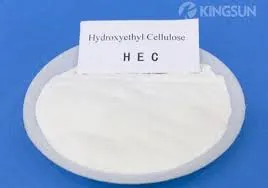
آگوست . 07, 2024 01:15 Back to list
Enhancing Mortar Performance with Innovative Bonding Additive for Superior Construction Results
The Importance of Mortar Bonding Additives in Construction
In the construction industry, the strength and durability of structures heavily rely on the materials used in their assembly. Among these materials, mortar plays a pivotal role as it acts as the adhesive that binds bricks, stones, and other elements together. To enhance the performance of mortar, particularly its bonding capabilities, the use of mortar bonding additives has become increasingly prevalent. This article explores what mortar bonding additives are, their benefits, and their applications in modern construction.
What Are Mortar Bonding Additives?
Mortar bonding additives are specialized chemical formulations designed to improve the adhesion properties of mortar. They are typically mixed with traditional mortar components, such as sand, cement, and water, to enhance performance characteristics. These additives come in various forms, including liquid latex emulsions, polymers, and powders, each designed to serve specific functions in enhancing mortar's bonding capacity.
Benefits of Mortar Bonding Additives
1. Improved Adhesion One of the primary functions of mortar bonding additives is to enhance the adhesive properties of mortar. This improved bonding strength ensures that bricks and masonry units stay firmly in place, which is crucial for structural integrity.
2. Increased Flexibility Traditional mortars can be brittle, leading to cracking and failure under stress. Additives can increase the flexibility of the mortar, allowing it to withstand structural movements and temperature variations without compromising its integrity.
3. Water Resistance Certain bonding additives impart water-resistant qualities to the mortar. This is particularly beneficial in areas exposed to moisture, such as bathrooms, kitchens, and exteriors, where water penetration can lead to deterioration of the structure.
mortar bonding additive

4. Enhanced Workability Mortar bonding additives can also improve the workability of the mix. A smoother, more workable mortar allows for ease of application, enhancing the efficiency of construction work and reducing labor costs.
5. Durability and Longevity By improving adhesion and flexibility, these additives prolong the life of the mortar, reducing the need for repairs and replacements. This durability is vital in maintaining the integrity of the building over time.
6. Resistance to Environmental Factors Mortar bonding additives can enhance resistance to environmental stresses, including freeze-thaw cycles, UV exposure, and chemical attacks. This is essential for outdoor applications where various elements can compromise the performance of conventional mortar.
Applications in Modern Construction
Mortar bonding additives are widely used in both residential and commercial construction. They are particularly valuable in renovation projects, where bonding to existing materials can be challenging. In such cases, additives can significantly improve the bond strength, allowing new materials to adhere securely to older surfaces.
Furthermore, in projects involving natural stone, brick, and tile installations, bonding additives ensure a strong and durable bond that can withstand the rigors of time and environmental exposure. They are also utilized in thin-set applications, where a strong bond is critical to prevent delamination and failure.
Conclusion
In conclusion, mortar bonding additives play a critical role in enhancing the performance of mortar in construction. By improving adhesion, flexibility, and water resistance, these additives ensure that structures are robust, durable, and capable of standing the test of time. As construction techniques evolve and demands for sustainable building practices grow, the importance of such additives will undoubtedly increase, allowing for safer and longer-lasting structures that meet the needs of modern society. Whether in new construction or renovation projects, the incorporation of mortar bonding additives is a step towards achieving high-quality, enduring results.
-
Unlocking the Benefits of HPMC Products: A Gateway to Versatile Applications
NewsAug.07,2025
-
Tile Bonding Cellulose: The Key to Superior Adhesion and Durability
NewsAug.07,2025
-
Hydroxypropyl Methylcellulose Powder: The Versatile Component in Modern Pharmaceuticals
NewsAug.07,2025
-
Hydroxyethyl Cellulose: The Versatile Solution for Various Industries
NewsAug.07,2025
-
Hydroxyethyl Cellulose (HEC): The Versatile Polymer for Various Applications
NewsAug.07,2025
-
The Ultimate Guide to Mortar Bonding Agent
NewsAug.06,2025







